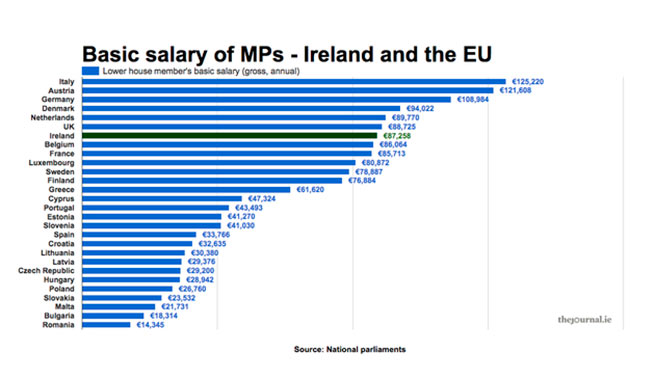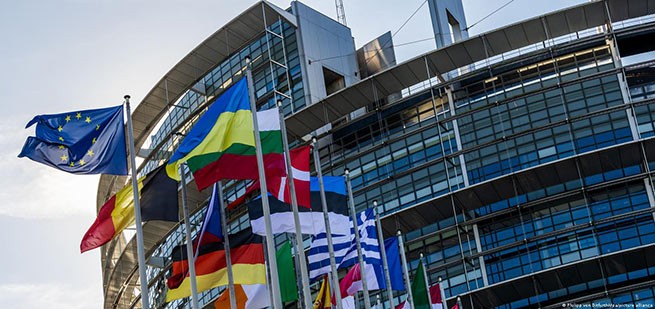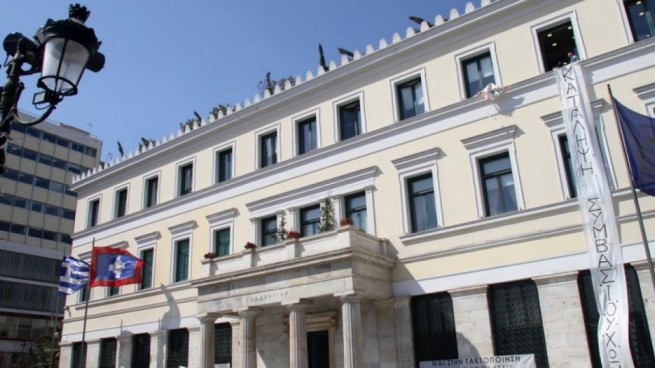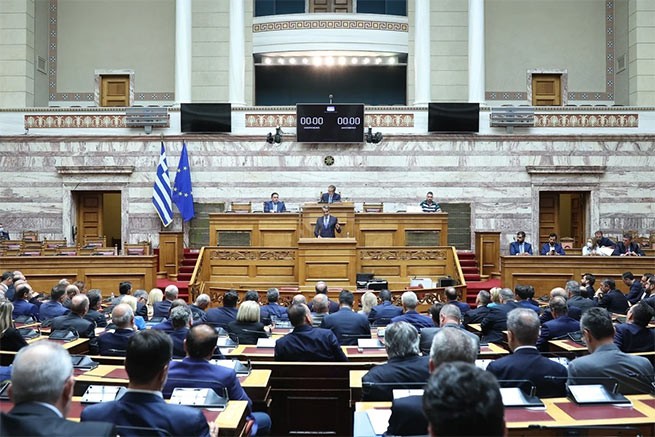Being a member of parliament (Βουλή των Ελλήνων) in Greece is honorable and prestigious, but this occupation is also well paid. How MPs, MEPs and local leaders are paid, read in our material…
Several elections will be held in Greece over the next 18 months. First tour national elections will take place on May 21, with a high probability the second round will be on July 2, and if everything comes to a standstill, no one excludes the third, etc. The struggle is expected to be tense, and none of the parties has a clear advantage. In October, 2 votes will be held in local elections, that is, for the election of city mayors and regional mayors, and in the spring of 2024 elections to the European Parliament will be held.
The Road to the Polling Stations: Deadlines and Unresolved Issues
Thus, within a relatively short period of time, the Greeks will be asked to decide who they want to see in power at the national, European and local levels. The most competent, the most indifferent, or those who, in the opinion of every citizen, deserve to be on the political stage. Therefore, it would be nice to know what salary they all receive. How MPs, MEPs and local leaders are paid.
So we have the details:
Greek Parliament
According to a recent statement by an MP, the net income of Greek parliamentarians is 4,787 euros. Each Member of Parliament pays monthly:
- In total deductions € 272.76
- In the form of taxes € 530.46
- 640.34 euros in EFKA (social insurance)
- Mandatory party fee €770.26. In some parties, of course, half or more is paid to party funds (for example, deputies from the KKE).
Thus, the amount of deductions and taxes per month is 2163.82 eurosand together with the party contribution reaches EUR 2934.08.
Greek MEPs also receive additional pay for some – not all – committee meetings, which entails an additional amount of 75 euros. Considering that each standing committee has one to two bills per month, paid meetings are usually 3 to 6.

The level of income of deputies of the parliament of the EU countries
Each month, along with the parliamentary salary, MPs are also paid:
- The allowance for the organization of the office, which for the deputies of the 1st and 2nd electoral districts of Athens and the 1st and 2nd Piraeus is 664.99 euros. For deputies from the provinces, it is 831.36 euros.
- Family allowance based on a declaration of marital status filed annually by an MP.
- Travel expenses, which for deputies of the constituencies of Athens, Athens I and II, Piraeus I and II and those whose constituencies have air links with the capital, amount to 291 euros. For deputies whose constituencies are closer to the capital, an amount of 389 euros is paid. For MPs whose constituencies are further from the capital, the amount of EUR 486 is paid. For members from the Cyclades and the Dodecanese, the amount of EUR 648 is paid.
- Postage: Each member is paid 909.31 euros per month for postage.
The Irish site thejournal.ie conducted a study of the salaries of MEPs in different countries. An MEP in Greece earns an average of 61,620 euros a year, half as much as an MEP in Italy. This is true, if you count only the salary. But in this publication, we will not consider the shadow incomes of parliamentarians …

European Parliament
MEPs
According to the official data of the European Parliament, all MEPs receive the same salary. It is set at 38.5% of the base salary of a judge of the Court of Justice of the European Union.
According to the unified remuneration scheme, the monthly salary of MEPs is 9808.67 euros (from 07/01/2022). This salary is paid from the Parliament’s budget. All MEPs pay taxes EU and social security contributions. After deduction, the salary is EUR 7646.00. In addition, most EU member states require their MEPs to pay an additional national tax. In Greece, a decision was recently taken by the Council of State, according to which there should be no additional tax.
In addition to wages, MEPs are also reimbursed for their expenses. For example, members of the European Parliament receive a daily allowance of 338 euros for each day they are present in the European Parliament for work. This money is mainly intended to pay for food and hotel accommodation. They also receive a fixed allowance of 4,778 euros per month for general business expenses, which include, among others, telephone and internet costs, media platform subscriptions and conference organization.
As a result, the daily and monthly allowances of MEPs amount to the equivalent of an additional salary. As a result, the total monthly income of an MEP is about 15,000-20,000 euros. Much of the work of MEPs involves being away from home and from the country of origin. Therefore, various allowances are provided to cover the corresponding costs – the data are given for the period from 2022 onwards.
Travel expenses
Most meetings of the European Parliament, such as plenary sessions, committee meetings and political group meetings, are held in Brussels or Strasbourg. MEPs are reimbursed for the actual cost of the ticket to the venue of the relevant meeting upon presentation of the relevant supporting documents, up to the maximum amount of covered expenses corresponding to a first class air ticket (or equivalent), a first class railway fare or €0.56 per kilometer by car (maximum 1000 km) , plus a fixed surcharge, depending on the distance and duration of the trip, to cover other travel-related expenses such as motorway tolls, excess baggage fees or booking fees.
In the course of performing their duties, MEPs often have to travel outside or within the country of election for purposes other than official meetings, such as attending a conference or working visit. For activities outside the country of election, MEPs may be entitled to reimbursement of travel and accommodation costs, as well as related expenses, up to a maximum of 4,716 euros per year. For activities in the country where they were elected, only travel expenses are reimbursed, but not more than the maximum annual amount established for each country.
Parliament pays a flat allowance of 338 euros to cover living expenses and other related expenses for each day that members are present in Brussels or Strasbourg on official working and sitting days, provided that they sign the register of attendance at meetings. The allowance covers the cost of hotel, meals and other expenses incurred during such presence. On days when voting is held in plenary sittings, if MEPs miss more than half of the roll call votes, the above allowance is reduced by 50%, even if they are present.
For meetings outside the EU, the surcharge is 169 euros (again with the signing of the attendance log) and hotel bills are reimbursed separately.
Overhead reimbursement
This fixed allowance covers the costs of MEPs’ parliamentary activities, such as office rent and running costs, internet, computer and telephone subscriptions, and the organization of conferences and exhibitions. The allowance is halved for MEPs who are absent without good reason for at least half of the days of the plenary session in the parliamentary year, from September to August. The allowance is 4778 euros per month.
MEPs are entitled to reimbursement of two-thirds of their medical expenses. Apart from the amount of reimbursement, the detailed rules and procedures of this scheme are the same as those for permanent EU officials.
At the end of their term of office, MEPs are entitled to receive a transitional allowance equal to their salary for one month during each year of their term. The maximum duration of this benefit is two years. In the event that a former MEP is elected to another parliament or holds a public office, the salary received under this new function is counted towards the transitional allowance. If an MEP is entitled to an old-age or disability pension, he must choose between them and a transitional allowance.
The Parliament provides MEPs with equipped offices in Brussels and Strasbourg. MEPs can use Parliament’s official cars for their official duties when they are in one of the two cities.
MEPs are entitled to an old-age pension from the age of 63. The pension is 3.5% of the salary for each full year of work and does not exceed 70% of the total salary. The costs of these pensions are covered from the budget of the European Union.
The supplementary pension scheme, created for MEPs in 1989, has stopped accepting new members since July 2009 and is being phased out.

Athens city hall building
Mayors
The mayors of large cities with more than 100,000 inhabitants receive a salary of 4,275 euros. These include the municipality of Athens and 16 other major cities (Thessaloniki, Patras, Piraeus, Heraklion, Larisa, Volos, Peristeri, Rhodes, Ioannina, Chania, Acharnes, Nikaya, Chalkis, Corfu, Evosmos, Kallithea). At the same time, the deputy mayor is paid 2,137 euros, and the chairman of the city council, 900.00 euros. As much as the mayors of large cities receive, the mayors of the regions receive, and the deputy mayors receive 3206 euros.
Now for municipalities with a population between 20,000 and 100,000: the mayor’s remuneration is 3,420 euros, the deputy mayor’s is 1,710 euros, and the chairman of the municipal council receives 720 euros per month.
The corresponding remuneration in municipalities with a population of less than 20,000 for the mayor is 2565 euros, for the deputy mayor 1282 euros and for the president of the municipal council 540 euros.







More Stories
Jennifer Aniston: 9 to 5 remake
More than 2 million taxpayers are at risk of seizure of accounts and assets
IOBE: Poverty threatens Greece